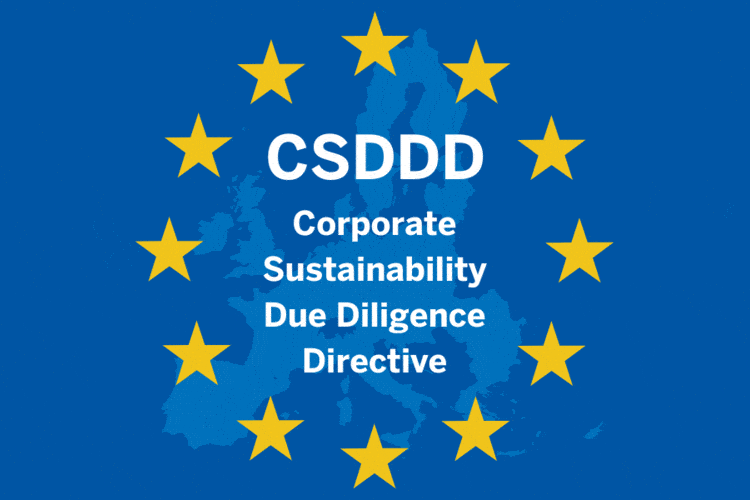
New EU climate law requires companies to green their operations – locally and globally
The EU has introduced new laws requiring big business to operate in a way that keeps global warming to the Paris Agreement limit of 1.5C.
The legislation will drive investments toward clean, green energy and circular economy solutions to climate change, such as AD and biogas.
The Corporate Sustainability Due Diligence Directive was adopted at the end of May. It is amongst the first legislation of its kind to set a legally binding obligation on companies to undertake ‘climate due diligence’ in their operations. This includes all supply chains.
Where adverse impacts are identified they should be ‘effectively addressed’, including the termination of contracts.
The scope of the Directive includes companies established within the EU with more than 1,000 employees and annual turnover exceeding €450 million. It also covers 3rd party contractors and franchisees.
These companies will now be required to adopt transition plans that align with pathways to limit warming to 1.5°C in accordance with the goals of the Paris Agreement.
The Directive is driven by three principal considerations critical to corporate sustainability and action on climate change; human rights, sustainability and environment. These align closely to the requirements of ESG reporting by companies listed on Stock Exchanges.
Non-compliance with the Directive carries consequences. Member States’ supervisory authorities will have powers for inspections and penalties, including fines of up to 5% of a company’s net worldwide turnover.
Human Rights
The Directive says, “All businesses have a responsibility to respect human rights, which are universal, indivisible, interdependent and interrelated.”
This means the impact on human rights of extraction of raw materials and supply-side operations must be considered and reflected in company reporting. This includes climate and environment impacts.
Sustainability
The Directive “underlines the importance of strengthening the resilience of companies in relation to adverse scenarios related to their value chains, taking into account externalities as well as social, environmental and governance risks”.
Clearly rocked by the gas crisis sparked by Russia’s invasion of Ukraine, the EU fears more such shocks can be expected as a result of external factors including climate change. “The frequency and impact of shocks involving risks to critical value chains are likely to increase in the future,” the directive notes. “The private sector could play an important role in promoting sustained, inclusive and sustainable economic growth, while avoiding the creation of imbalances on the internal market.”
Environment
On the environment, the Directive sets out that sustainability should be further embedded into the corporate governance framework, aligned to existing frameworks to “accelerate the green transition to a climate-neutral, sustainable, non-toxic, resource-efficient, renewable energy[1]based, resilient and competitive circular economy in a just, equitable and inclusive way, and to protect, restore and improve the state of the environment by, inter alia, halting and reversing biodiversity loss.”
See an overview of the Corporate Sustainability Due Diligence Directive here

